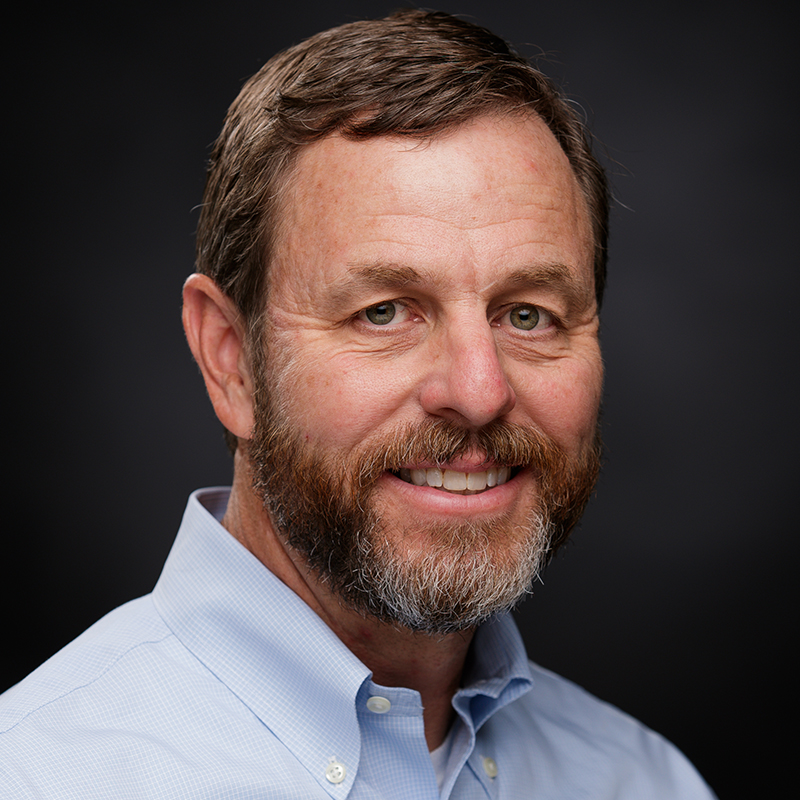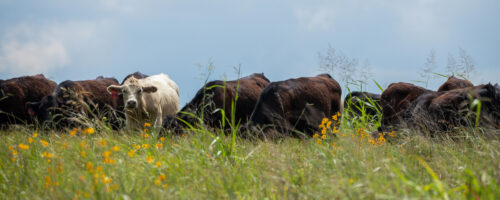Transformational Learning Equals Transformed Land
Transitioning to a regenerative agriculture system requires an understanding that soil improvement is a long-term effort.
Earlier this year, I had the great privilege to speak to The Economic Club of Oklahoma about Noble’s mission and activities. Short of speaking about my wife and sons, there is nothing more I like to discuss than Noble.
Our organization’s story begins with our founder, Lloyd Noble, and his vision for restoring soil and safeguarding the land for future generations. We have worked toward his vision for more than seven decades thanks to the support and leadership of Noble and his descendants. It’s an amazing story, and I’m always excited to share it.
In preparation for my talk, I came across this quote from Noble, who spoke these words to the Tulsa Farm Club on Jan. 22, 1948 (just three years after he established our organization):
“Our major interest, however, insofar as the soil program is directly concerned, is putting at the disposal of our contestants and others who observe the work that is being done, a source of knowledge that after it becomes a part of them, will cause them to have more confidence in themselves.”
I read and reread the quote. Each time the same phrase struck me — “after it becomes a part of them.” The “it” was (and is) the knowledge of a method of farming and ranching that is both profitable and regenerates the soil. Noble understood that knowledge for knowledge’s sake is not enough. Awareness alone changes nothing. A transformation of thought is the first step. The first step allows us to gain confidence and comfort that enables a transformation of practice. The “it” — the knowledge — has to take root and become part of who you are to be lasting.
So often the producers we work with discover what they need most is an experienced friend to encourage and offer perspective.
Within the pages of this issue of Legacy, you will read about three ranchers who exemplify the transformational learning required to undertake regenerative agriculture (the process of restoring degraded soils using practices based on ecological principles). So many producers are coming to the realization — just as Mr. Noble did — that we cannot simply sustain degraded land. We must repair and improve it.
Transitioning to a regenerative system is a slow process, and it requires an understanding that soil improvement is a long-term effort. Managing a regenerative system takes intentional work. The biological process is complex and intertwined with weather, moisture, seasons, supported plants, livestock and wildlife.
This is where Noble Research Institute comes in. Noble not only offers research-based information. We walk alongside farmers, ranchers and land managers. So often the producers we work with discover what they need most is an experienced friend to encourage and offer perspective. Noble is happy to fill this role through one-on-one interaction or through group educational events.
In our educational events, we bring together like-minded producers to meet, interact, and learn from us and each other. They grow stronger through collaboration and help each other apply knowledge into the real-world setting.
As we look to the future, imagine regenerative practices powered by the hands and hearts of the nation’s livestock producers, guided by mentors who possess research-based answers and quality information, fueled by collaboration, and applied to more than 650 million acres of pasture and rangeland across the country.
Regenerative agriculture can transform the land for all of society, building healthy and more productive soil that is drought- and flood-resilient; decreasing the use of chemical inputs and subsequent pollution; providing cleaner air and water; enhancing wildlife habitat; and capturing carbon in the soil to mitigate climate variability.
Regenerative agriculture is not a switch to be flipped or a quick-fix elixir. It is a working journey. It requires farmers, ranchers and land managers willing to transform their thinking and to allow that thinking to transform their actions. This, in turn, is how we transform the land for this generation and all those to come.
Sincerely,

Steve Rhines,
President and CEO


Comment